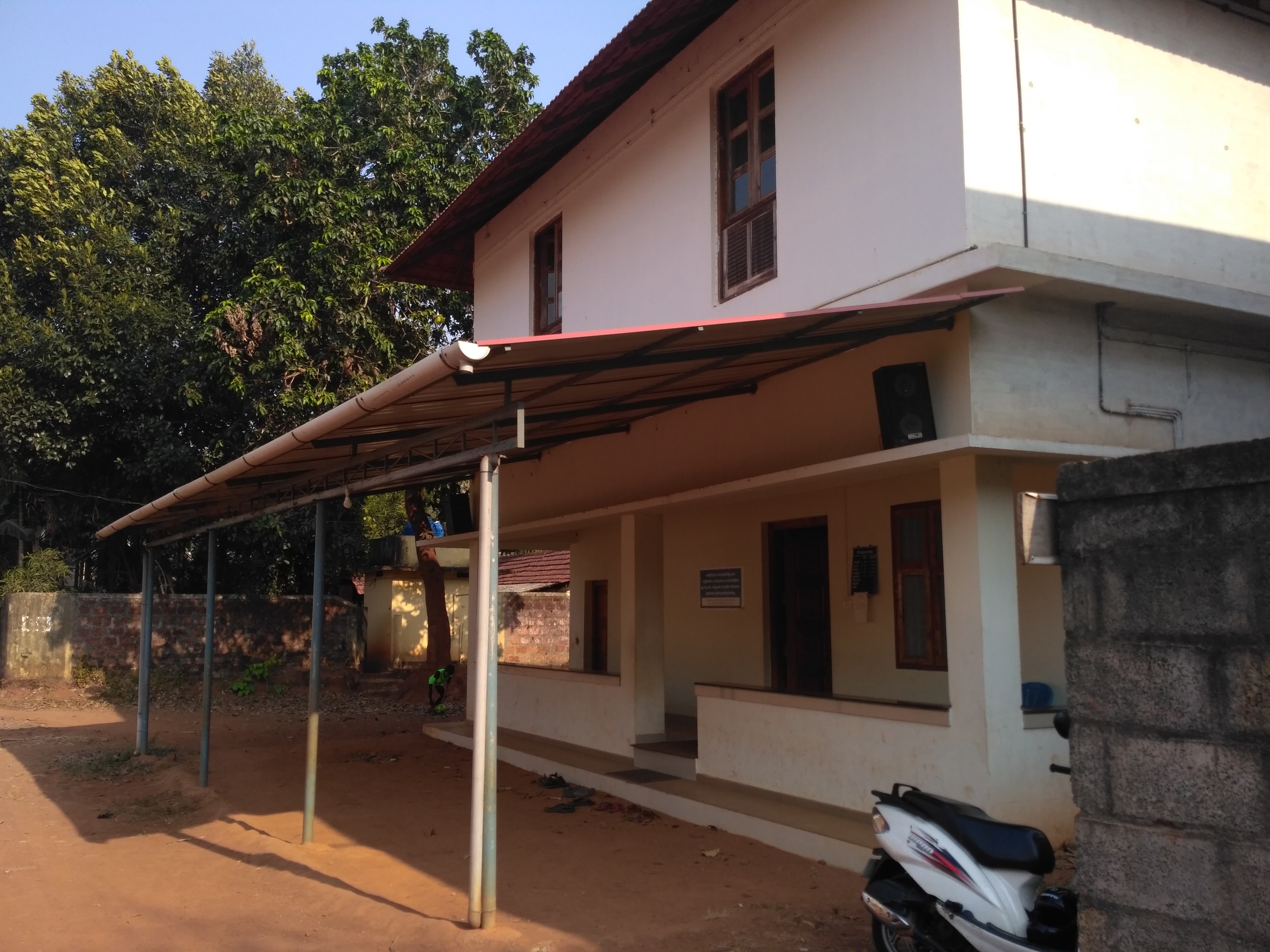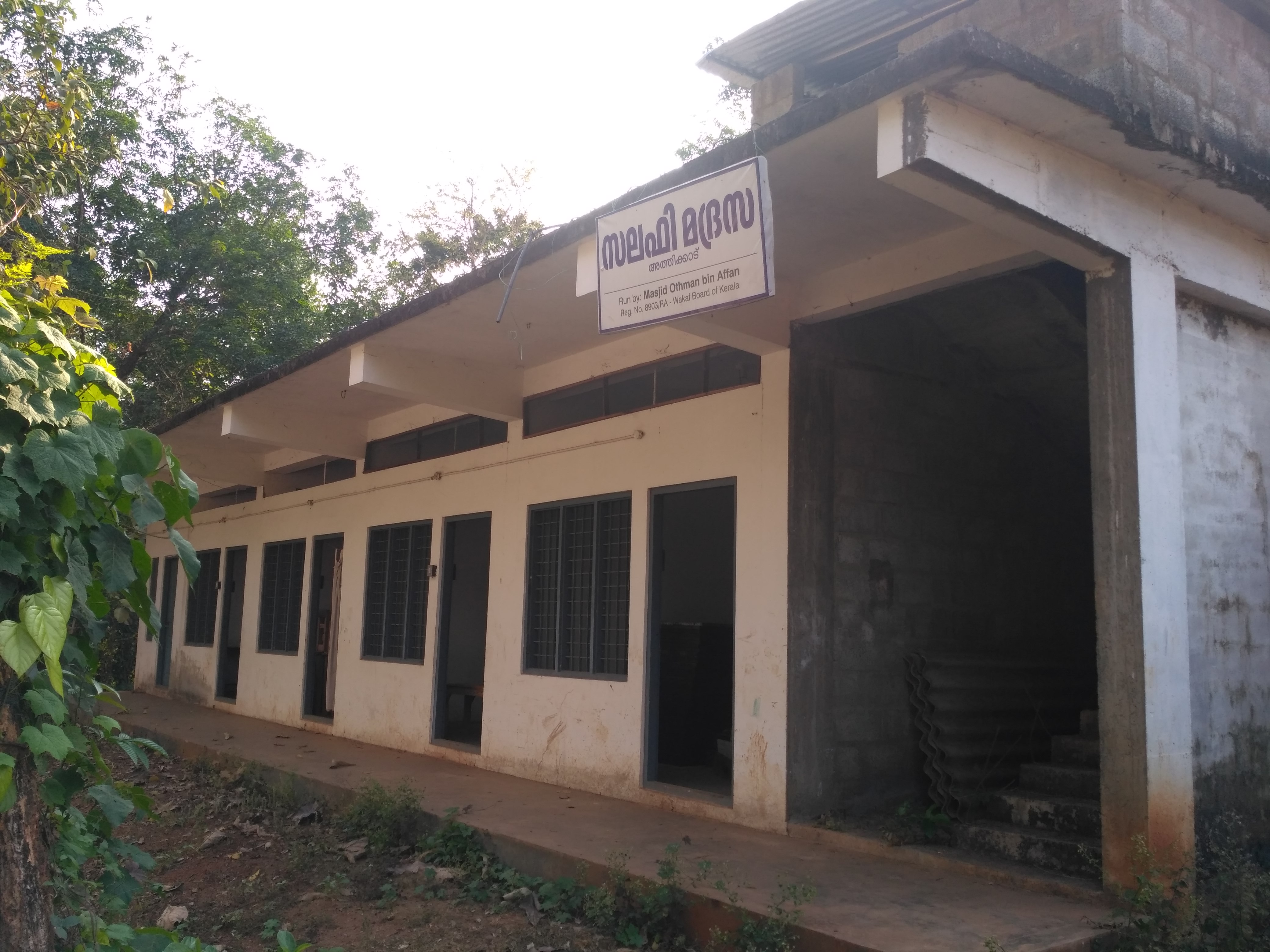A police complaint, missing people and the terror link that never existed: The story of a Salafi commune in Malappuram

By Amit Kumar and Shafeeq Hudawi, Twocircles.net
How does one undo the damage caused by a ‘lie’, an allegation that should never have been made, or a rumour that should have been nipped in its bud? For a Salafi commune in Athikkad, Nilambur of Malappuram district, the best way seems to be that of keeping calm and quietly going on with their business in a manner that attracts zero attention.But, as they have found out, it has not always been easy.
Dammaj, a small town in the Sa’dah Governorate of North-western Yemen, is home to Dar-al-Hadith, a major centre for Salafists across the world. In 2007, a few residents of Kerala decided to replicate the model in Malappuram. Although geographically, the lush greens of Nilambur are a world apart from the dry and arid regions of Yemen, the people believed that everything else could be on the lines of Dammaj. Some of these people had worked and lived in Saudi Arabia and had attended Salafi classes during their stay. In Zubair Mankada, a local school teacher who taught Arabic in a government school, they found a leader and a preacher, and in 2007, the ‘commune’ was established. It aimed to offer the families a puritan life akin to that of Prophet Mohammed (PBUH). So, they zeroed in on the village of Athikkad, surrounded by greenery and offered a chance to the families—18 to begin with—a place to raise cattle and live as shepherds, just like the Prophet. The centre also hosted a number of religious discussions called Dars every week, and was attended in large numbers by people.
[caption id="attachment_406169" align="aligncenter" width="642"] The Mosque in the commune[/caption]
The Mosque in the commune[/caption]
By the end of 2007 itself, these activities had caught the attention of the local police. Ten years later, one of the founding members of the commune, Yasir Amani, says that he understands why the people and the police got suspicious. “Our commune was surrounded by tribal families, and we never interacted with them,” he says. “Add to this, every week a number of men would show up in many cars and attend meetings. If they (locals) that we were only discussing religious matters, maybe they would not have suspected us. But we made a mistake by never talking to them...and hence, their concerns soon found way to the Police,” he adds.
When Police first arrived, they asked a lot of questions, says Amani, but returned satisfied with their answers. And then they came back again. And they kept coming back. “It seems like they were always looking for something to implicate us...but, there was nothing going on. The number of families rose to 25 at one point, we built our own mosque, our own madrasa and school,” says Amani. Replicating the life of the Prophet however, turned slightly more difficult. Interestingly, Zubair, who was pretty much the top guy in this commune, continued to teach in the government school, Amani continued to work in the office of a local MLA and some other members found day jobs at offices. The commune enforced strict rules, and stuck to it. The police kept coming, but for the next six years the commune bloomed and in 2013, it had over two dozen families living there with many more visiting on a regular basis. And that is where the trouble began for Zubair. The madrasa property ran into a dispute with the Waqf Board and before any action could be taken against Zubair, he promptly left the commune. Amani, who is now 37 years old, says that the departure of Zubair brought down the whole functioning of the commune. “We lost a person who could lead us in prayers, a teacher who could impart knowledge to our kids and a personality who could draw a lot of people. But he was doing wrong things and it had to be pointed out,” Amani adds.
The departure of Zubair by the end of 2013 also meant that around 6 families also left. “We had a mosque without an Imam and a madrasa without an Aalim,” says Amani. By that time, the commune had begun to gain a lot of importance, and many people who were supposed to come refused after they heard that Zubair had left,” he adds. “I was hoping that some other people will come and help us,” he says.
A complaint taken out of context
Other people did come, but they were ‘extreme’, says Amani, even by his standards. “A year after Zubair left, some families from Kannur arrived. Some of the men who came strongly objected to my daughter, who was around 8 years old then, playing with boys her age. I could not understand what the issue was: she did the same thing in the government school that she went,” he says. “If anything, I had issues with her playing with non-Muslim kids, but what was the issue with Muslim kids?” Amani said. This, along with a few other issues, made him uneasy.[caption id="attachment_406170" align="aligncenter" width="621"] The 8-room madrasa now runs out of 1 room, while the remaining rooms are used as godowns.[/caption]
The 8-room madrasa now runs out of 1 room, while the remaining rooms are used as godowns.[/caption]
The family of Shihabuddin was one of the families to arrive from Kannur to the commune. Shihabuddin, a soft-spoken man, met the correspondents at his home in the commune. “I came here because it provided an ideal environment for my family to live an Islamic life, away from all distractions, and with fellow Muslims,” he says. Since Shihabuddin came after Zubair had left, he claimed little knowledge of the feud, but said that he too realised that the police was watching them. “I was never afraid however. I knew that as per the laws of this country, I was not doing anything illegal,” he says. “But, I guess even by Malappuram standards, our beards were too long,” he says laughingly. Shihabuddin says he follows “Saudi Islam”, which according to him, is pure and the correct path. He refused to be photographed, saying that capturing images is ‘Haram’ in Islam. To substantiate his point, he showed his mobile gallery, saying, “See, I have six children but none of their pictures are in the phone. I do not take images of anything that has a soul, as it can be corrupted.” Noticing the slightly confused look on our face, he says, “I know, this idea may be extreme for you. I get that...I also do not allow my children to be vaccinated, or get polio drops. It is against the principles of Islam. But I am not trying to promote terror. I and my family are merely following our teachings,” Shihabuddin, who works as an accountant in a company, says.
In June 2016, Amani decided to write to the local police station. “It was the beginning of Ramadan. I wanted the police to essentially check the background of the new people who had arrived. I was not sure who they were, and what they were doing here. I did not want our commune to get a bad name. However, initially the cops refused to act on the same,” he says.
And then, days later, 15 youths were said to have fled Kerala to go to Dammaj, but the local media turned the news on its head and said that they had instead gone and joined ISIS. “I remember that news,” says Shihabuddin. “The police had always suspected us, now they claimed to have proof: we had brainwashed some people and made them join ISIS,” he says. Amani too rubbished this claim. “It is one thing to live life like a Salafi and another to go out and kill people who disagree with you. These people were not from our commune, I do not remember seeing them, and we had definitely not inspired them to such things,” he says. But nevertheless, the commune made for good news: women in Hijab, men with long beards and in general, a bunch of people who never spoke to the non-Muslims. “This image suited them, and they used my complaint to point out that even the members had said there were extremists living here,” says Amani. How was I to explain to them that we were too liberal for our ‘fellow’ Salafis and too hardcore for the outside world?” he says. To avoid the attention, most of the families that had come from Kannur left. Shihabuddin was frequently called to the police station for questioning, but said that he was neither manhandled nor spoken to in a harsh manner. “I would just go, repeat the same things again and again, and come back.”
A few months later, the truth emerged: the people had indeed gone to Dammaj, but returned after the area was attacked by Saudi Air Force in action against the Houthi rebels. “But by that time, the damage for us was already done. Our dream of making a full-fledged Islamic school was over: now, there is just a small madrasa for children and they attend regular schools otherwise. There are only nine families that remain now, and Dars and other religious meetings are rarely organised. In some ways, Shihabuddin says it has helped because the police last ‘spoke’ to him about six months ago. “They now know that we are few in numbers, and that there is little going on here. Our madrasa building doubles-up as a godown now, so you can imagine the rest.”Both Amani and Shihabuddin are firm in their beliefs, and like Shihabuddin, Amani too says that he does not allow his children to be vaccinated, but rather than sight religion as his inspiration, he says it is his “personal choice”. “In retrospect, maybe I should have not filed the complaint...but what if that had lead to something even worse? This is a loss of reputation in some ways and we might recover. The media did not do its job; it fed on paranoia and took things out of context,” he adds.
As the sun finally begins to cool down, the call for prayers blare out of their local mosque. Keeping in with Salafi values, Shihabuddin points out the simplicity of the mosque. “It is not flashy, it is a house where we recite our prayers. There is nothing to distract us,” he says.
But for the media and the police, the mere existence of this commune remains a focal point every time someone ‘joins ISIS’. “We cannot do much about that,” says Shihabuddin. “Countries like Saudi Arabia have issued various fatwas saying that ISIS is a terrorist organisation. Who are we to question that?” he says as we bid him goodbye.
